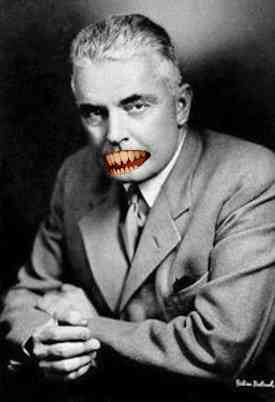John B. Watson
Born on January 9, 1878, John B. Watson grew up in South Carolina
where he was considered a very poor academic student. Not allowing
this to dissuade him, he entered Furman University at the age
of 16 where he graduated with a Master's Degree in only five years.
And just a couple of years later in 1903, John Watson earned a
Ph.D. in psychology from the University of Chicago.
 John B. Watson
John B. Watson |
|
Watson's career path changed in 1908 when he began teaching psychology
at Johns Hopkins University and began revealing his behaviorist
teachings to the world shortly after. He was once quoted as saying
"Psychology as the behaviorist views it is a purely objective
experimental branch of natural science.
"Its theoretical goal is the prediction and control of behavior.
Introspection forms no essential part of its methods, nor is the
scientific value of its data dependent upon the readiness with
which they lend themselves to interpretation in terms of consciousness."
Although John B. Watson gave the scientific and psychology community
many new and innovative techniques and methods, he is best known
for his "Little Albert" experiment where he and his
assistant, Rosalie Rayner conditioned a small child to fear a
white rat.
This was achieved by repeatedly pairing the white rat with a
loud noise. The ethics of this experiment are often criticized
today, especially because it was thought that the child's fear
was never normalized. It is believed that Little Albert died at
the age of 6 due to congenital hydrocephalus, so the normalized
"fear theory" is inconclusive.

The Little Albert experiment was a case study showing empirical
evidence of classical conditioning in humans and the results of
this experiment were first published in the February 1920 issue
of the Journal of Experimental Psychology.
Watson's experiment and is teachings set the stage for behaviorism
as we know it today. Although his version of behaviorism began
to lose its hold after the 1950's, many of the concepts and principles
he discovered are still in use today.
Conditioning and behavior modification are still widely used
in therapy and behavioral training to help clients change problematic
behaviors and develop new skills. These methods are helping addicts
find new ways to suppress their addictive behavior and live a
healthy, addiction free life.
Although John B. Watson's teachings may seem archaic by today's
standards and some of his evidence has since been refuted, he
was still at the forefront of the psychological community in the
early 1900's and his experiments have given many of today's psychologists
some food for thought.
Rumor Has It …
… that John B. Watson, on his deathbed, was visited by Willard
the Rat who said, "I'm baaaaack!" as he bit him on the
nose.
Written by Kevin Lepton
Published on January 13, 2015
|

